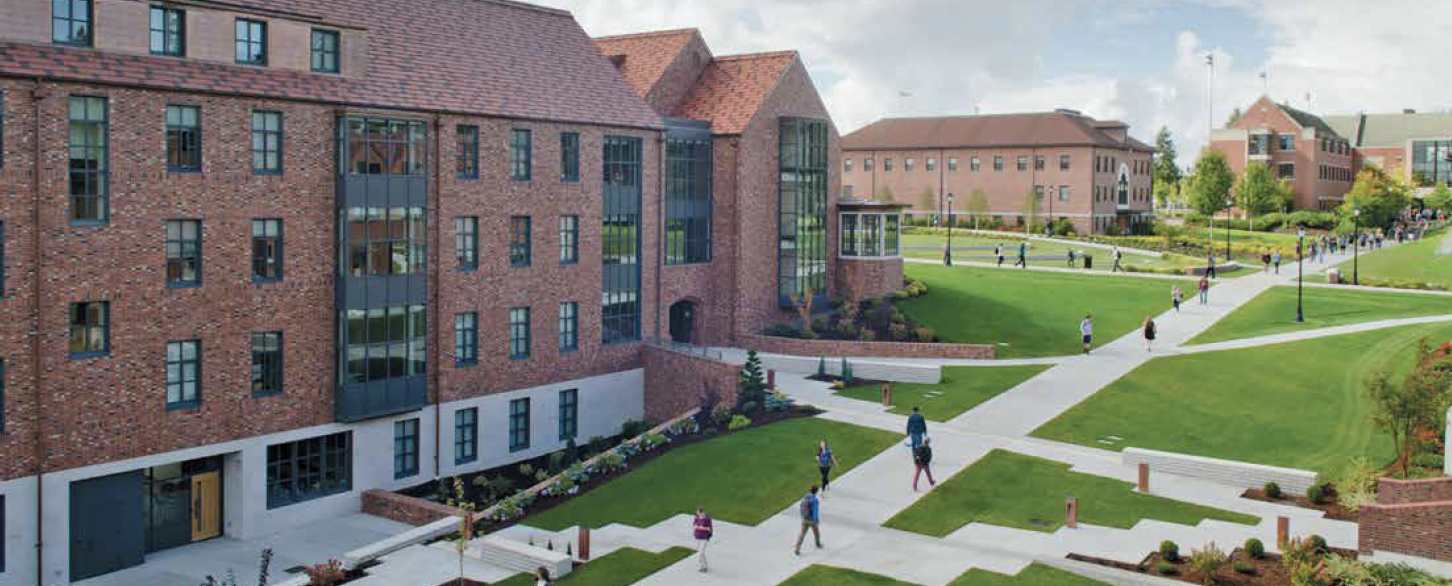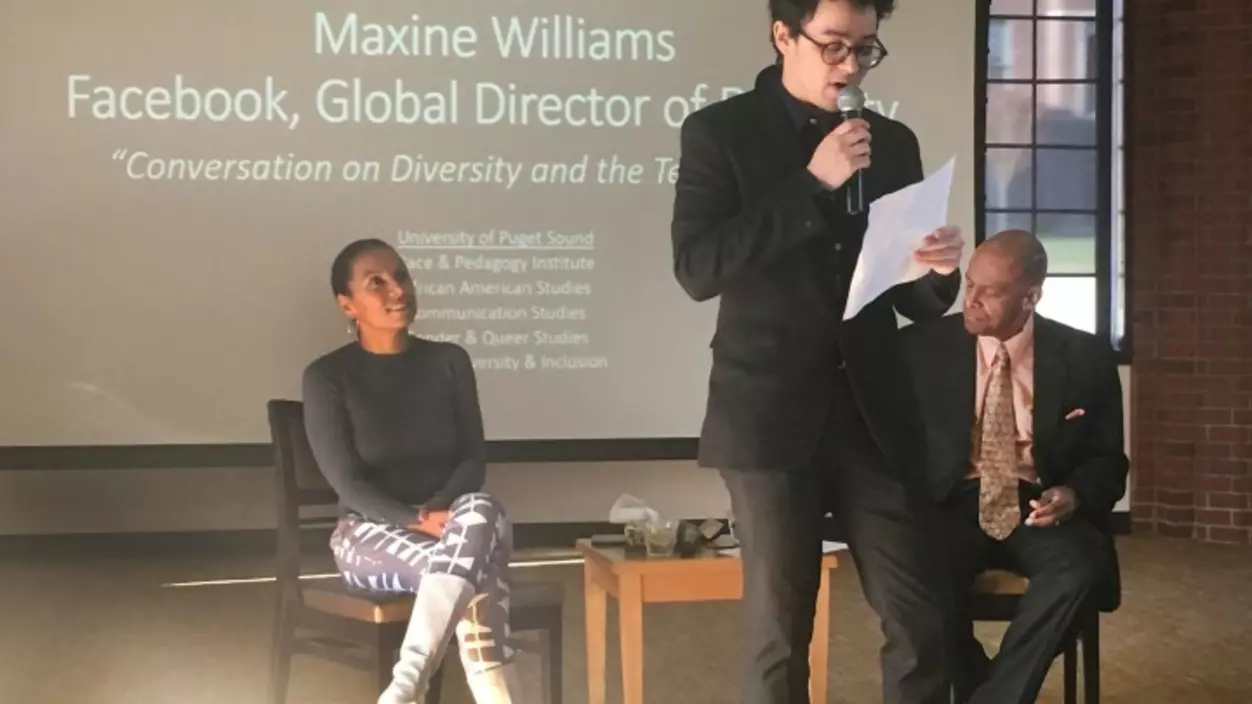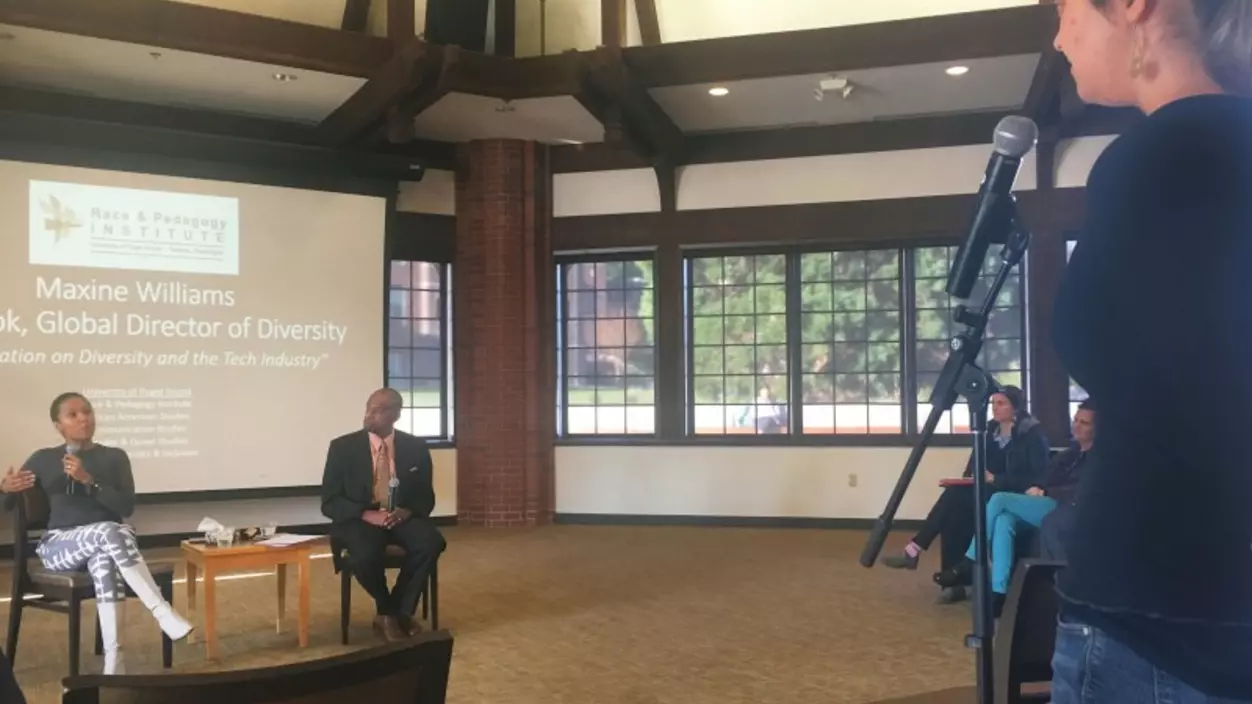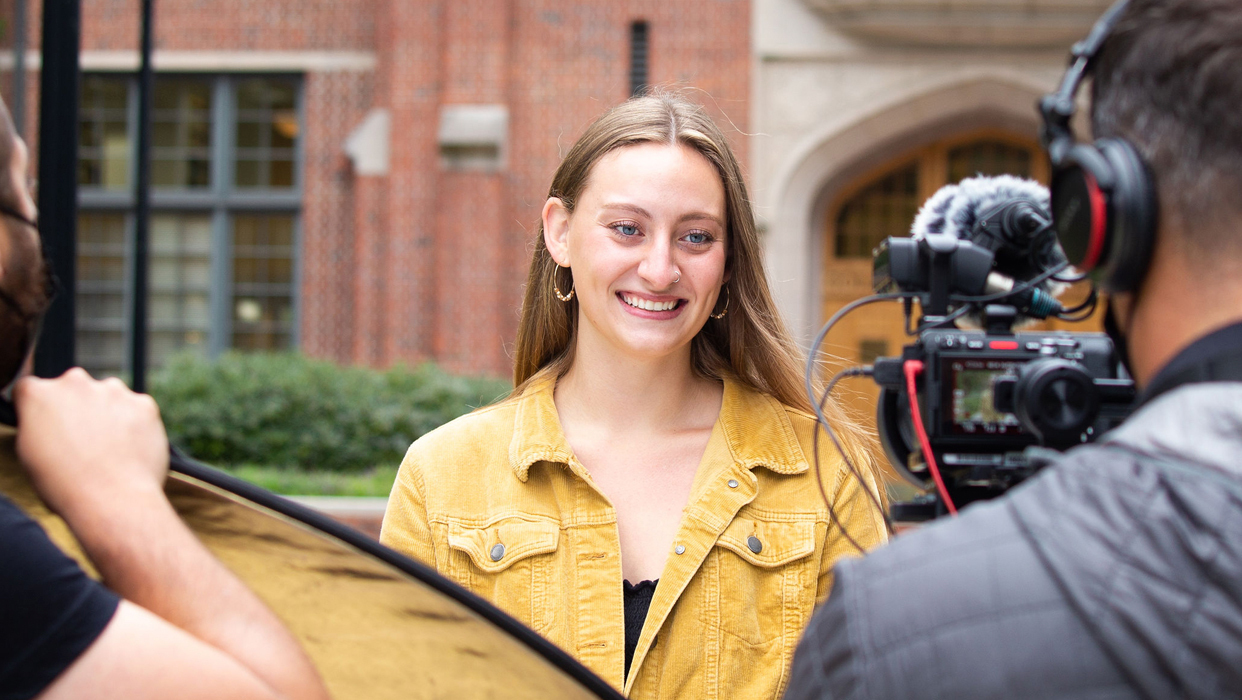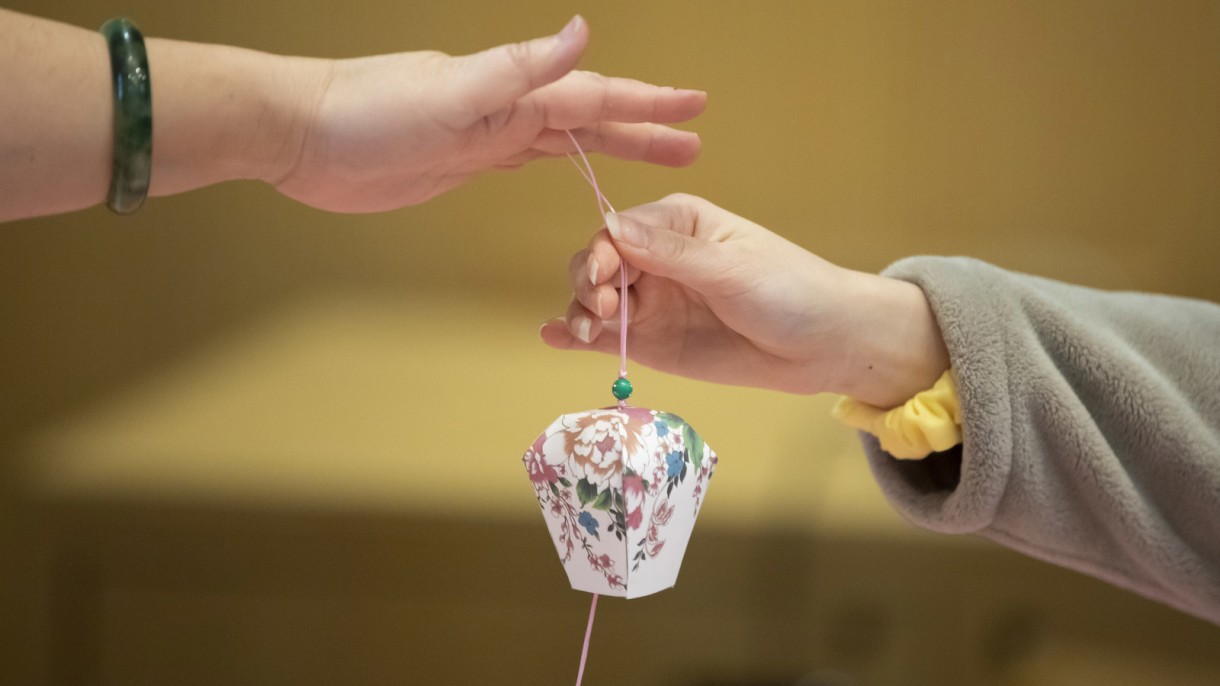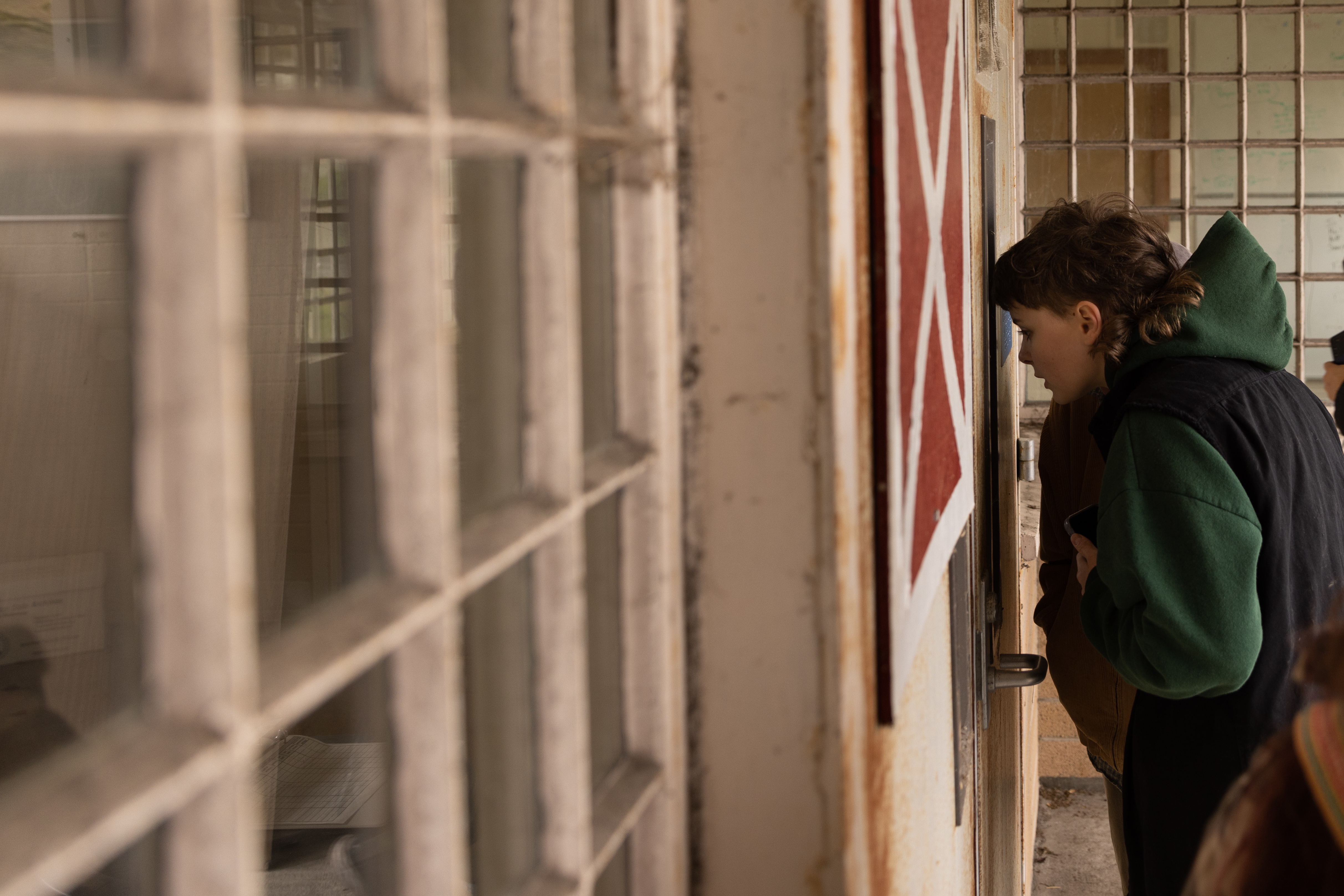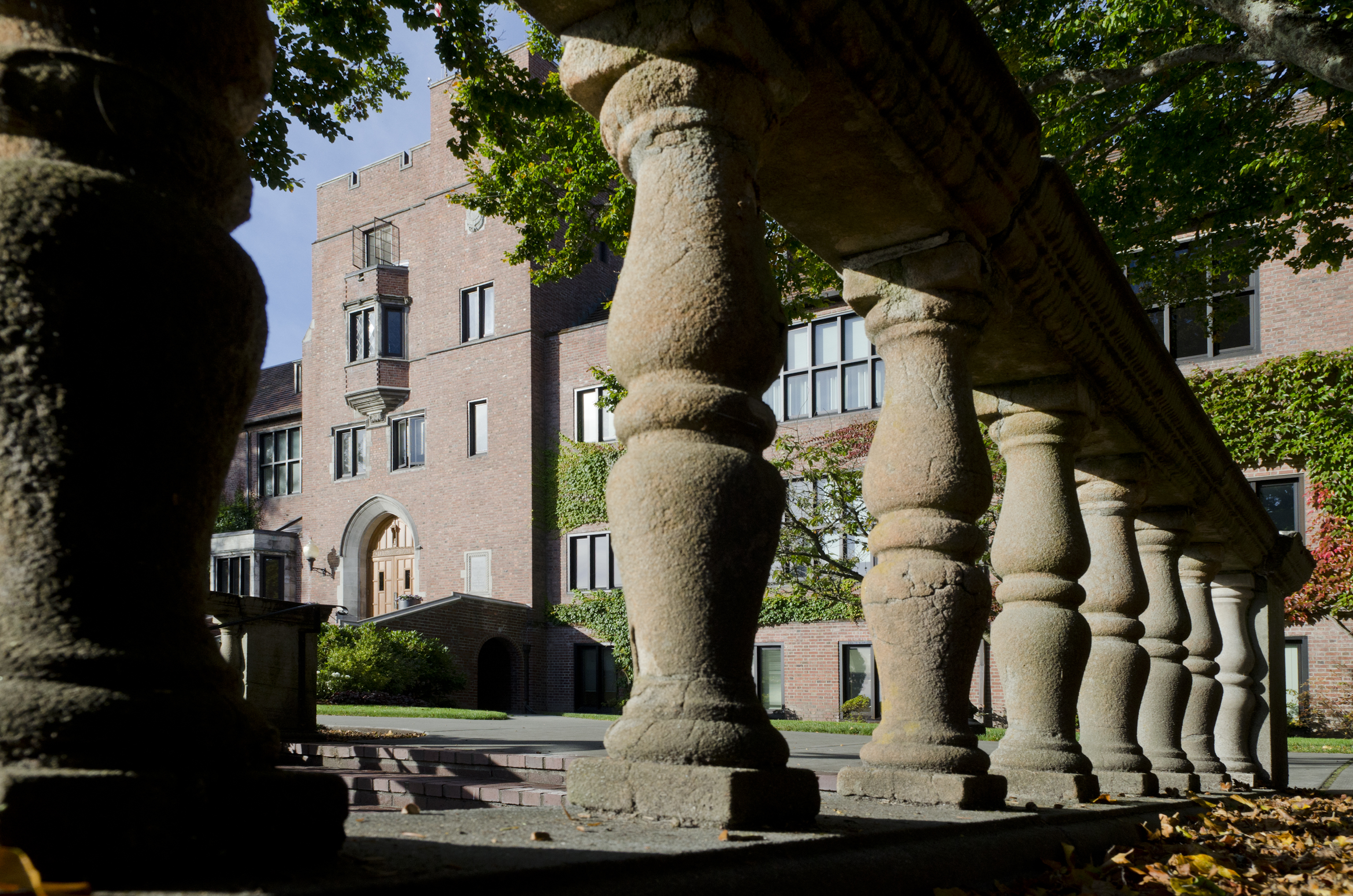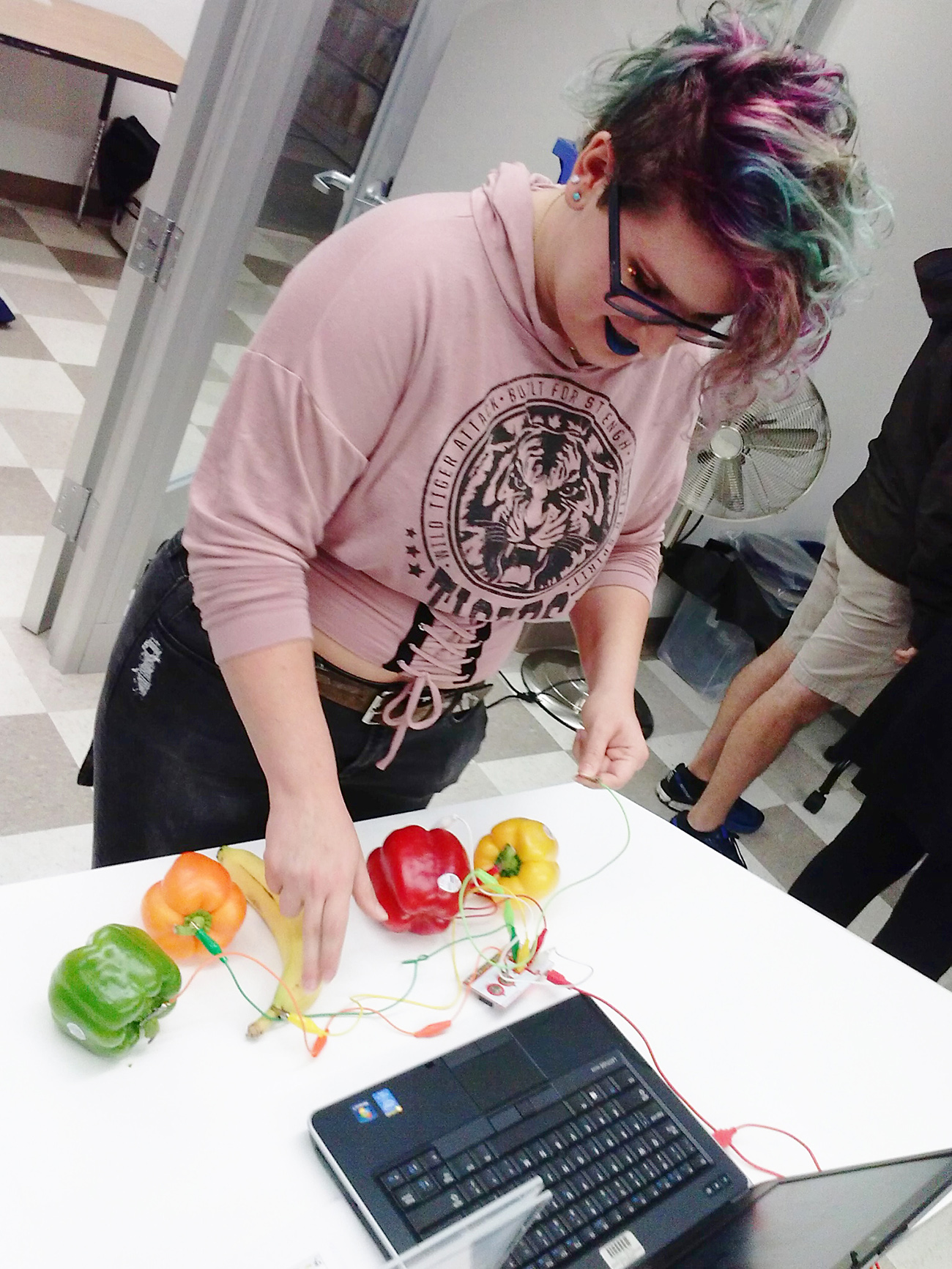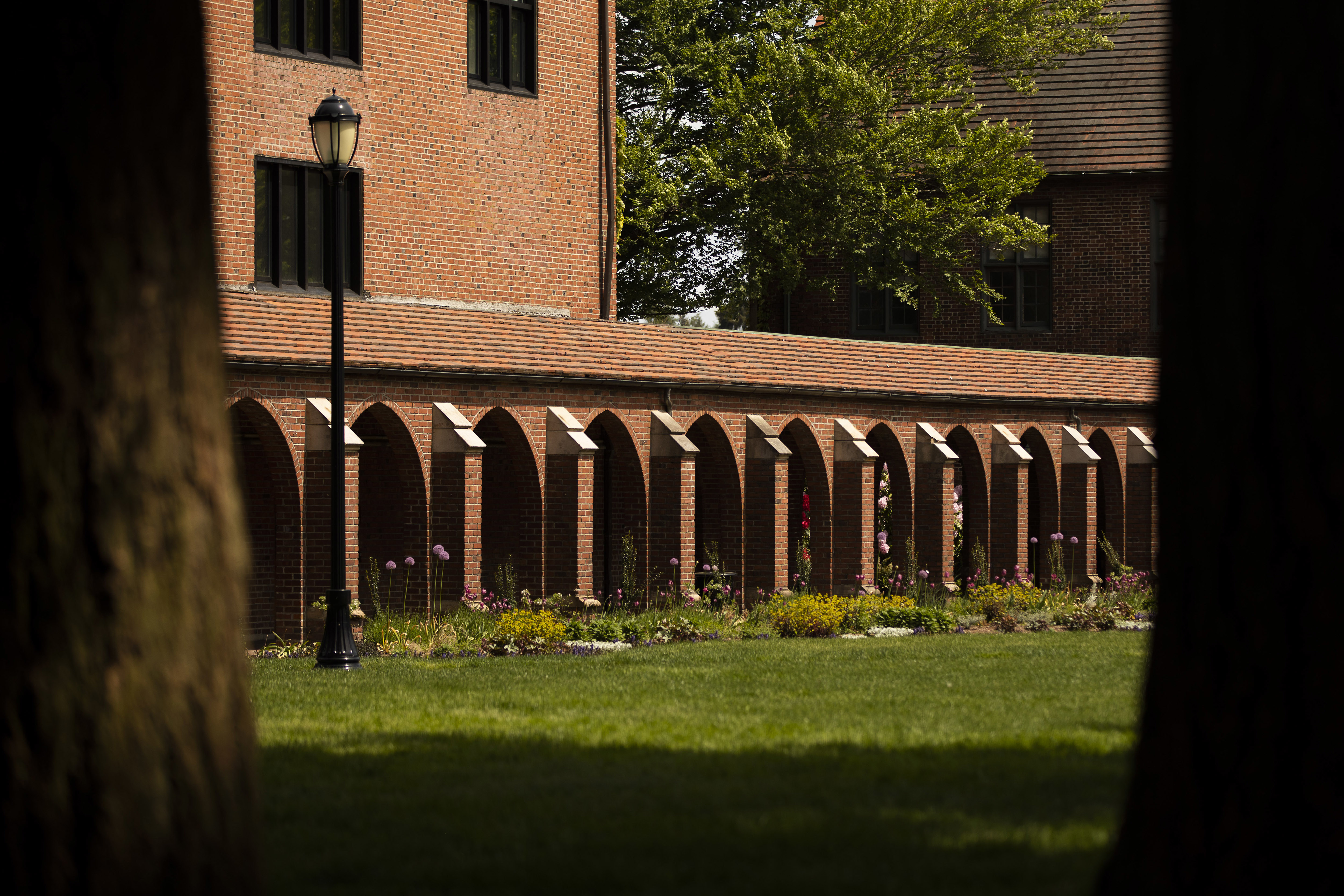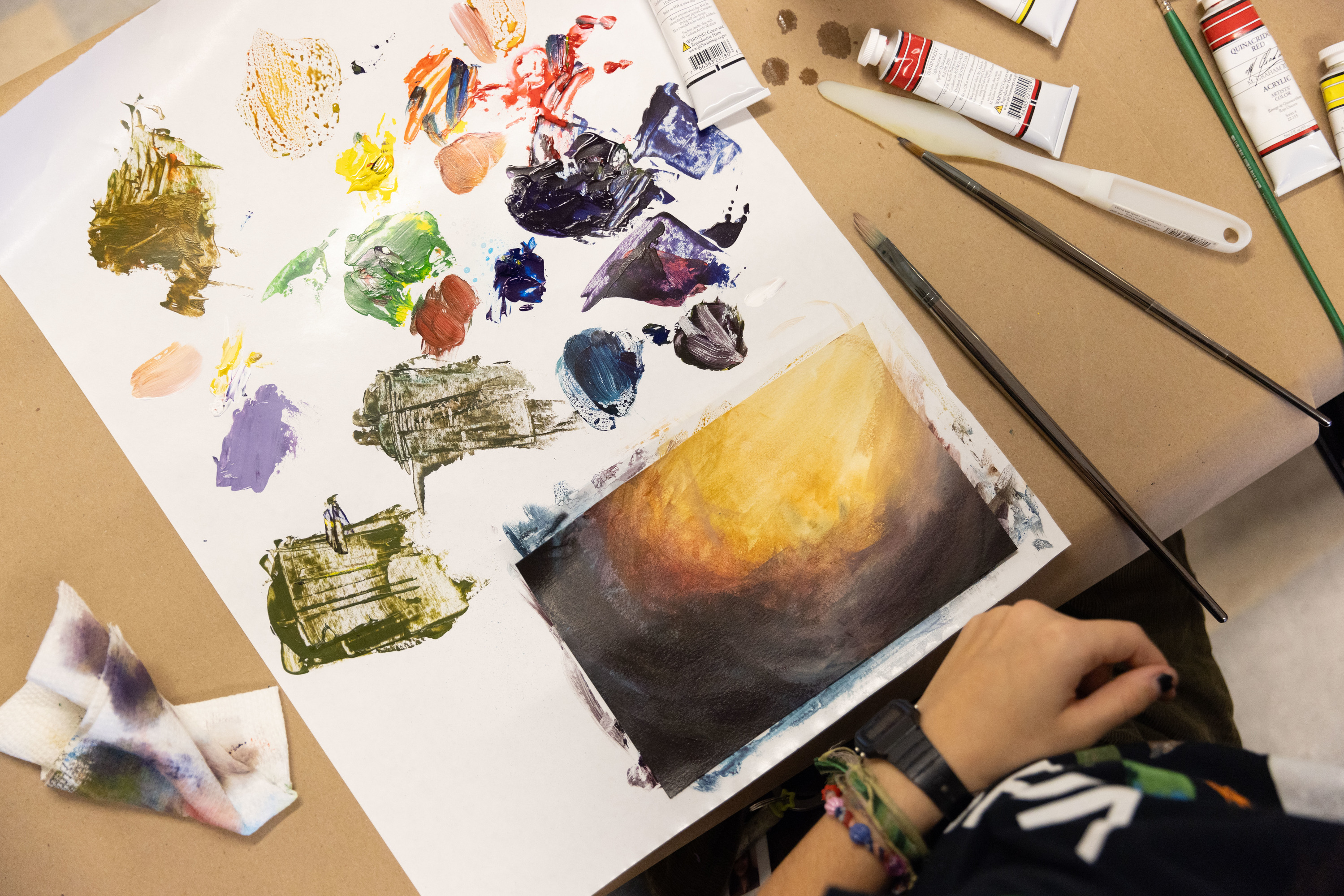It was a rare occasion when Facebook's global director of diversity visited campus on a recent Wednesday, and dozens of Puget Sound faculty, staff, and students converged to hear her discuss the issue of diversity in the tech industry.
Maxine Williams has been in her position at Facebook for more than four years, during which time the tech industry has come under serious scrutiny for its lack of diversity. According to multiple sources, less than 16 percent of this country’s 7 million tech-sector employees are black or Latino; 35 percent are women. And the statistics at Facebook aren’t much better. It’s these numbers that have the media, lobbyists, and politicians asking “why?” Maxine believes it’s an issue of access.
